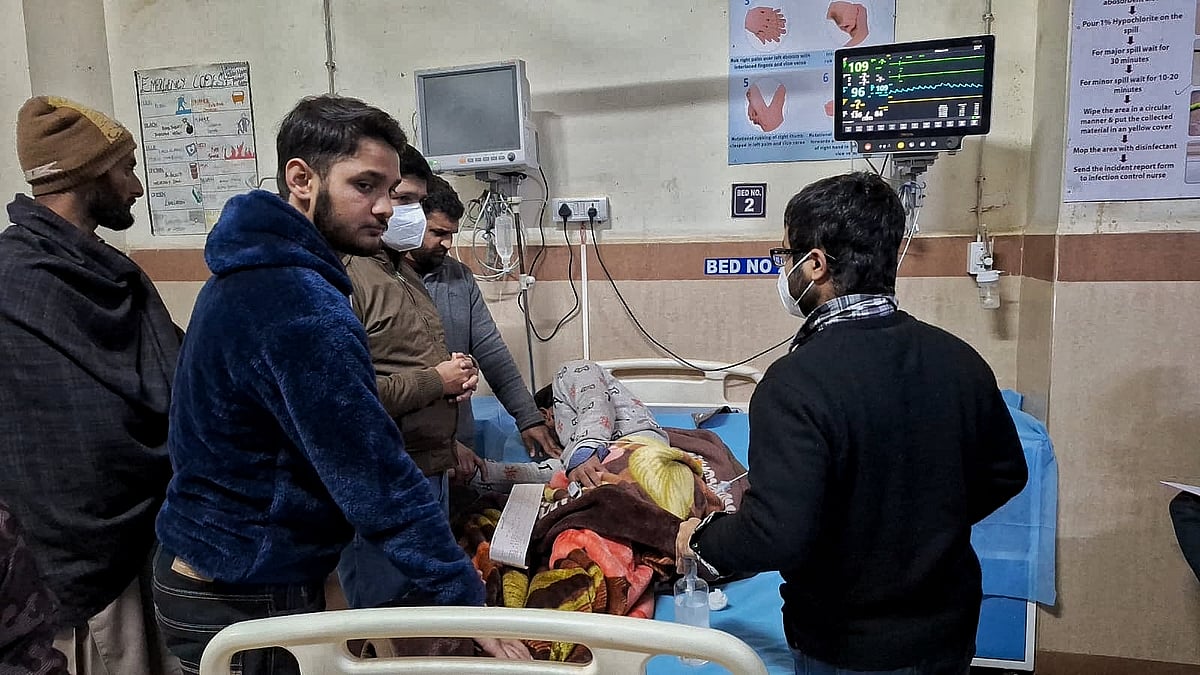 |
|
The village of Badhal, in Rajouri, India, is grappling with a mysterious pestilence that has claimed several lives, leaving residents in a state of shock and confusion. Initial investigations pointed towards pesticide contamination of a local water reservoir, prompting authorities to seal the source and impose strict containment measures under Section 163 of the Bharatiya Nagarik Suraksha Sanhita, 2023. However, further investigation has dramatically shifted the focus of the inquiry. The initial concern over water contamination, though leading to important precautionary measures, has been largely superseded by evidence suggesting a far more complex issue: the presence of neurotoxins in the food consumed by the affected individuals.
As the number of reported cases increased, experts from various fields were brought in to assist in the investigation. Days of meticulous research and analysis revealed the presence of several neurotoxins—chemicals that disrupt the functioning of the central and peripheral nervous systems. The most prevalent of these identified neurotoxins was alcohol (ethanol), followed by monosodium glutamate (MSG), a common flavour enhancer, and acrylamide, a chemical compound found in some baked and fried foods. The chronic consumption of such toxins is known to cause a range of debilitating health problems, including brain shrinkage, cognitive decline, strokes, and behavioural disorders. This discovery significantly altered the course of the investigation, shifting the focus from environmental contamination to potential food-borne toxicity.
Crucially, no viral or bacterial infection was detected among the affected population. The primary symptoms reported by the villagers included fever and profuse sweating. Shuja Qadri, a senior epidemiologist and the head of the Community Medicine Department in charge of the investigation, definitively stated that all current evidence points away from a viral or communicable disease as the cause of the deaths. Instead, the investigation has narrowed down to the identification of specific toxins present in the food consumed by the villagers. Over 200 food samples have been collected and are currently undergoing rigorous screening at various institutions across the country to isolate and identify the precise neurotoxin responsible for the outbreak. Authorities are optimistic that the results of these tests will be available within a week or ten days, allowing for the implementation of targeted control measures to prevent further casualties.
The ongoing investigation draws parallels to the June 2019 Muzaffarpur mystery in Bihar, where a toxin in litchi fruit, methylene cyclopropyl-glycine, caused over 150 child fatalities. This past event underscores the potential lethality of food-borne neurotoxins and provides a valuable case study for the current situation in Badhal. A senior doctor involved in the Rajouri investigation noted the rapid metabolism of the toxins, explaining the difficulty in detecting lethal traces in the samples. While some samples did test positive for pesticides and insecticides, the levels detected were within permissible limits, further solidifying the suspicion that the primary cause lies in food-related toxicity. The focus remains firmly on isolating the specific toxin and determining whether its presence in the food supply was deliberate or accidental. The uncertainty surrounding this crucial element is a key aspect of the investigation, shaping the overall approach to containment and prevention.
The situation in Badhal highlights the importance of rigorous food safety standards and the urgent need for improved surveillance systems to detect and respond effectively to such outbreaks. The emotional toll on the community is immense, exemplified by the heartbreaking story of Muhammad Nayeem, who had to drastically curtail his brother’s wedding preparations due to the crisis. His lament, referring to the situation as 'Khuda Kahar'—the wrath of God—captures the despair and helplessness felt by the villagers in the face of this devastating event. The thorough investigation being conducted, while offering a path towards understanding the source of the crisis and preventing future occurrences, will hopefully also provide a measure of solace and closure to the affected community. The speed and effectiveness of this investigation stand as a testament to the dedication and expertise of the scientific community tackling this public health emergency.
